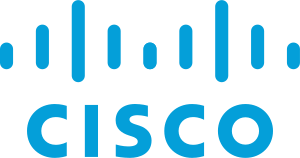CCNA Training (Cisco Certified Network Associate)
Training Deals
Summary
Online
E-Commerce
PO Booking
Telephone
- Exam(s) / assessment(s) not included in price, and must be purchased separately
- Tutor is available to students
Location & dates
BIRMINGHAM
West Midlands
B12LP
United Kingdom
Coram Street
Central London
London
WC1N1HT
United Kingdom
Old Broad Street
City Of London
London
EC2M1RX
United Kingdom
Beech Street
City Of London
London
EC2Y8AD
United Kingdom
Overview
This 5-day course combines the Interconnecting Cisco Network Devices Part 1 and Part 2 courses into one accelerated course, allowing you to then take the Cisco Network Devices: Accelerated exam and achieve CCNA Routing and Switching certification.
Once you have passed the exam you will gain CCNA certification and become a Cisco Certified Network Associate in Routing and Switching.
Over the course of 5 days you will be learning how to install, operate and configure a basic IPv4 and IPv6 network and become familiar with Cisco networking devices.
CCNA Routing and Switching is a highly sought after associate certification for the network engineer, administrator or specialist looking to further their career and build on foundational network knowledge.
Certification
Cisco Certified Network Associate Routing and Switching (CCNA Routing and Switching)
Description
Course Structure
- The course consists of five days of classroom-based training, including hand-on learning experience with Cisco networking products
- You will need to book the exam separately with Pearson Vue
Course Content
Module 1: Building a Simple Network:
- Exploring the Functions of Networking
- Understanding the Host-to-Host Communications Model
- Introducing LANs
- Operating Cisco IOS Software
- Starting a Switch
- Understanding Ethernet and Switch Operation
- Troubleshooting Common Switch Media Issues
- Module Summary
Module 2: Establishing Internet Connectivity:
- Understanding the TCP/IP Internet Layer
- Understanding IP Addressing and Subnets
- Understanding the TCP/IP Transport Layer
- Exploring the Functions of Routing
- Configuring a Cisco Router
- Exploring the Packet Delivery Process
- Enabling Static Routing
- Managing Traffic Using ACLs
- Enabling Internet Connectivity
- Module Summary
Module 3: Managing Network Device Security:
- Securing Administrative Access
- Implementing Device Hardening
- Implementing Traffic Filtering with ACLs
- Module Summary
Module 4: Introducing IPv6
- Introducing Basic IPv6
- Understanding IPv6
- Configuring IPv6 Routing
- Module Summary
Module 5: Building a Medium-Sized Network
- Implementing VLANs and Trunks
- Routing Between VLANs
- Using a Cisco Network Device as a DHCP Server
- Troubleshooting VLAN Connectivity
- Building Redundant Switched Topologies
- Improving Redundant Switched Topologies with EtherChannel
- Understanding Layer 3 Redundancy
- Module Summary
Module 6: Troubleshooting Basic Connectivity:
- Troubleshooting IPv4 Network Connectivity
- Troubleshooting IPv6 Network Connectivity
- Module Summary
Module 7: Wide Area Networks:
- Understanding WAN Technologies
- Configuring Serial Encapsulation
- Establishing a WAN Connection Using Frame Relay
- Introducing VPN Solutions
- Configuring GRE Tunnels
- Module Summary
Module 8: Implementing an EIGRP-Based Solution
- Implementing EIGRP
- Troubleshooting EIGRP
- Implementing EIGRP for IPv6
- Module Summary
Module 9: Implementing a Scalable OSPF-Based Solution
- Implementing OSPF
- Multiarea OSPF IPv4 Implementation
- Troubleshooting Multiarea OSPF
- Examining OSPFv3
- Module Summary
Module 10: Network Device Management:
- Configuring Network Devices to Support Network Management Protocols
- Managing Cisco Devices
- Licensing
- Module Summary
CCNA Routing and Switching Exam
- Booked separately through Pearson Vue
- Tests the skills required to install, operate and a troubleshoot a small to medium sized network
- 90 minutes
- 50-60 questions
- A range of question types
Who is this course for?
The course is attended for anybody looking to achieve CCNA Routing and Switching certification.
Requirements
Prerequisites
There are no prerequisites, but we recommend candidates should have the following:
- Basic computer literacy
- Basic PC operating system navigation skills
- Basic Internet usage skills
- Basic IP address knowledge
Career path
IT professional, CISCO technical professional, Specialist in IT networks
Questions and answers
Reviews
Currently there are no reviews for this course. Be the first to leave a review.
Legal information
This course is advertised on reed.co.uk by the Course Provider, whose terms and conditions apply. Purchases are made directly from the Course Provider, and as such, content and materials are supplied by the Course Provider directly. Reed is acting as agent and not reseller in relation to this course. Reed's only responsibility is to facilitate your payment for the course. It is your responsibility to review and agree to the Course Provider's terms and conditions and satisfy yourself as to the suitability of the course you intend to purchase. Reed will not have any responsibility for the content of the course and/or associated materials.


